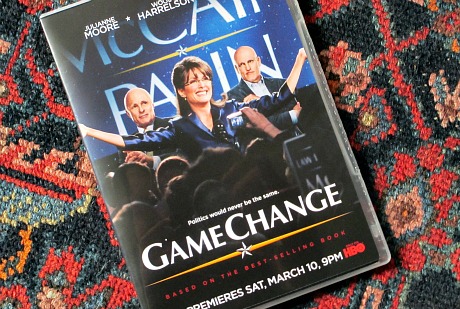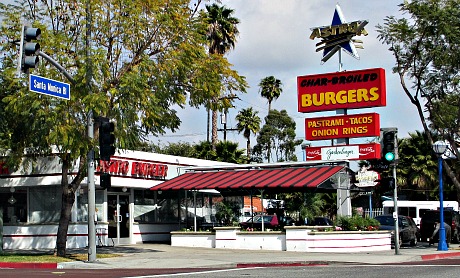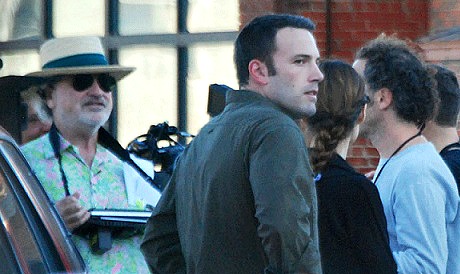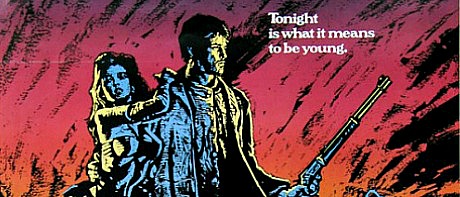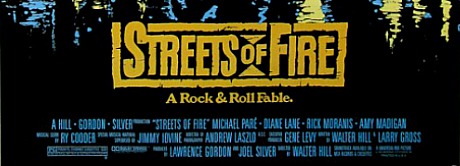Sometime last night Awards Daily‘s Sasha Stone riffed on Brad Brevet’s 2012 Best Picture spitball review on Rope of Silicon, which I also responded to yesterday. She threw out some agrees and disagrees, but mainly she lamented the tendency of “bloggers” (i.e., referring to me) to dumb down the list of possible Best Picture contenders.
I didn’t dumb anything down in yesterday’s article. I simply manned up and looked at the world we live in by (a) listing the ten most likely Best Picture defaults and (b) removing 14 or 15 possibilities from Brevet’s list because they all have insurmountable negatives as far as your generic 62 year-old white-guy Academy member is concerned.
Are we talking “best” here? Not necessarily. Are we talking quality or cult clamor or box-office? Maybe, maybe not. We’re talking about the 2012 films that seem to adhere to the rigidly codified standards of Best Picture-dom as defined by neck-waddle boomers.
What is an insurmountable negative as far as the 62 year-olds are concerned? The kind of flavorful, tangy, grindhouse-wank movie that Quentin Tarantino likes to make, for one. Movies that are always tasty and self-amused and always limited in scope because they’re relentlessly shallow without the slightest trace or echo of any natural fermentation in God’s universe that hasn’t been precisely pre-imagined and pre-digested by Tarantino in his living room, or, more accurately, by some ’70s or ’80s movie that he saw when he was younger.
Tarantino’s movies have always been and always will be a spiritual dead end. They’re always entirely about Tarantino — exclusively, totally, absolutely — and the sealed-vacuum, heroin-hit bubble of his yokel memories and references and private hard-on amusements. He makes movies for people who belong to his club and that’s all. Which, yes, is arguably the same thing that Jacques Tati, Samuel Fuller, Jean Luc Godard and John Ford did, fine. The difference is that Tarantino doesn’t live by an open window. He doesn’t know what an open window is. I know from Godhead consciousness, and it is impossible for him to see, know or touch the eternal. Especially within the confines of a western. He is spiritually incapable of doing anything but riffing on other movies.
“The bloggers and the critics will do all of the leg work for the Academy and the industry by testing the films to reduce them down to a manageable size,” Stone writes. “The bloggers will look at what they think is Oscar bait, and/or films they’re looking for to. We wait for those films to be seen by either said bloggers or film critics, who then write the reviews that (mostly) do the deciding for the Academy. They take maybe one hundred possible contenders and reduce them down to about ten or so viable contenders. Makes it a lot easier for them folks to sift through the screener pile, eh?
The problem, Stone concludes, is that “the bloggers and critics sometimes dumb it too far down so that what becomes a viable ‘Oscar contender’ is really, more or less, the least offensive of the bunch. Popular taste dictates this anyway, doesn’t it? The most vanilla usually woos the most folks.”
There is nobody in the online-film column universe who’s more receptive to clear light nirvana revelation than yours truly. I have experiencned LSD in solemn, semi-spiritual environments and I know about all about the concept of satori. I’ve not only “been there” but am openly seeking spiritual deliverance at all times. If there is one thing my life has been about so far, it is “where is the light? where is the window that looks at the open blue sky?” I therefore often instinctually reject the default Academy member definition of what constitutes an exceptional, award-worthy film.
But we’re all swimming in the same lake, and it can’t hurt for conversation’s sake to hold our nose and…okay, cynically identify those films that are likely to become Best Picture nominees. What are we supposed to do ? Close our eyes and clasp our hands over our ears and go “blah, blah, blah…we don’t want to know…blah, blah, blah…there is no Lincoln, no Les Miserables, no Anna Karenina?”
“Can we all try a little harder not to dumb the vetting process down to what we think the Academy will like and instead focus on great films no matter where they hail from?,” Stone asks. Absolutely damn straight. I do that every weekday, 7:30 to 12 midnight, and doubly on weekends.
Stone’s kicker: “Raise your hand if you think Attack the Block should have gotten more attention?” It’s raised, it’s raised!


